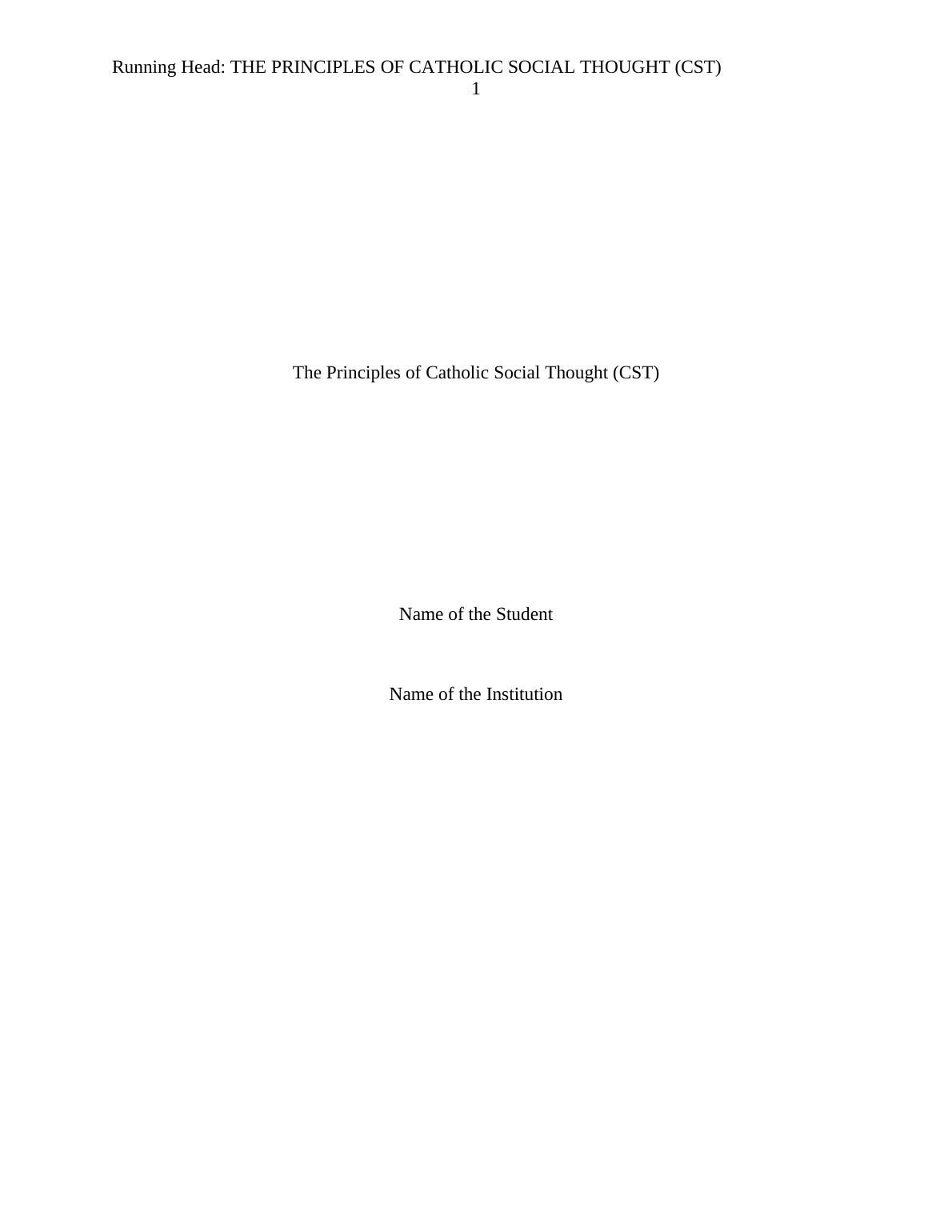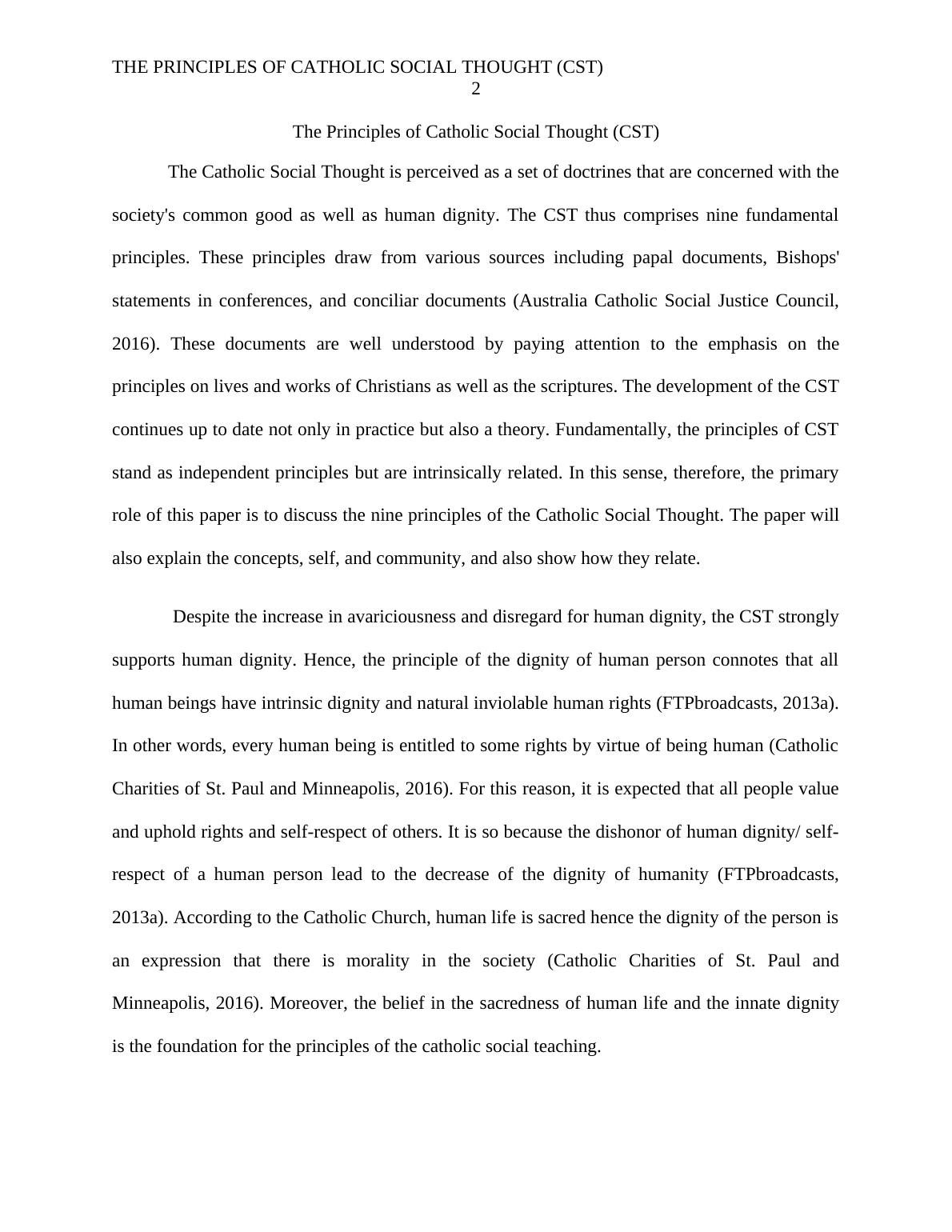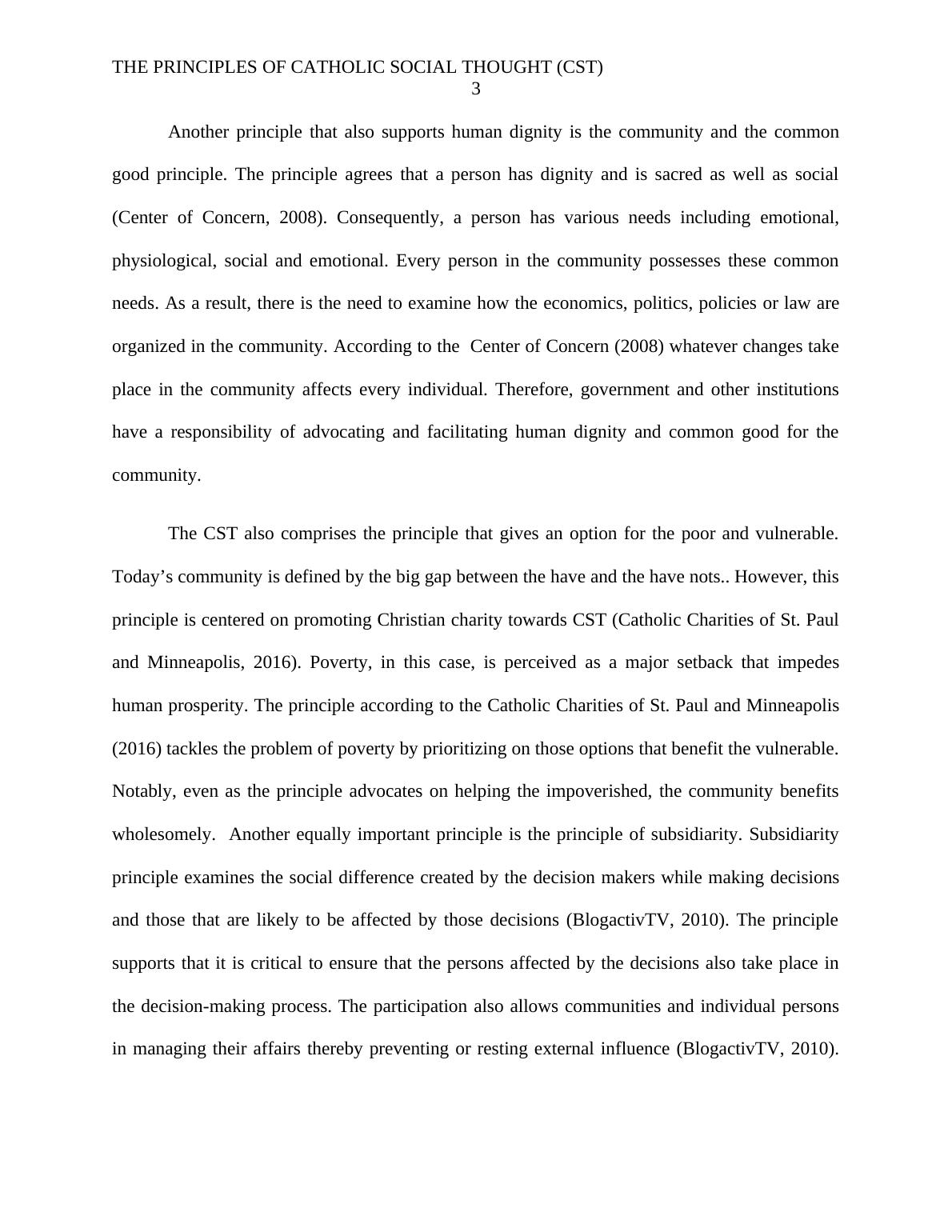The Principles Of Catholic Social Thought (CST) - PDF
Added on 2020-02-18
8 Pages1893 Words176 Views
Running Head: THE PRINCIPLES OF CATHOLIC SOCIAL THOUGHT (CST)1The Principles of Catholic Social Thought (CST)Name of the StudentName of the Institution

THE PRINCIPLES OF CATHOLIC SOCIAL THOUGHT (CST) 2The Principles of Catholic Social Thought (CST)The Catholic Social Thought is perceived as a set of doctrines that are concerned with thesociety's common good as well as human dignity. The CST thus comprises nine fundamentalprinciples. These principles draw from various sources including papal documents, Bishops'statements in conferences, and conciliar documents (Australia Catholic Social Justice Council,2016). These documents are well understood by paying attention to the emphasis on theprinciples on lives and works of Christians as well as the scriptures. The development of the CSTcontinues up to date not only in practice but also a theory. Fundamentally, the principles of CSTstand as independent principles but are intrinsically related. In this sense, therefore, the primaryrole of this paper is to discuss the nine principles of the Catholic Social Thought. The paper willalso explain the concepts, self, and community, and also show how they relate. Despite the increase in avariciousness and disregard for human dignity, the CST stronglysupports human dignity. Hence, the principle of the dignity of human person connotes that allhuman beings have intrinsic dignity and natural inviolable human rights (FTPbroadcasts, 2013a).In other words, every human being is entitled to some rights by virtue of being human (CatholicCharities of St. Paul and Minneapolis, 2016). For this reason, it is expected that all people valueand uphold rights and self-respect of others. It is so because the dishonor of human dignity/ self-respect of a human person lead to the decrease of the dignity of humanity (FTPbroadcasts,2013a). According to the Catholic Church, human life is sacred hence the dignity of the person isan expression that there is morality in the society (Catholic Charities of St. Paul andMinneapolis, 2016). Moreover, the belief in the sacredness of human life and the innate dignityis the foundation for the principles of the catholic social teaching.

THE PRINCIPLES OF CATHOLIC SOCIAL THOUGHT (CST) 3Another principle that also supports human dignity is the community and the commongood principle. The principle agrees that a person has dignity and is sacred as well as social(Center of Concern, 2008). Consequently, a person has various needs including emotional,physiological, social and emotional. Every person in the community possesses these commonneeds. As a result, there is the need to examine how the economics, politics, policies or law areorganized in the community. According to the Center of Concern (2008) whatever changes takeplace in the community affects every individual. Therefore, government and other institutionshave a responsibility of advocating and facilitating human dignity and common good for thecommunity. The CST also comprises the principle that gives an option for the poor and vulnerable.Today’s community is defined by the big gap between the have and the have nots.. However, thisprinciple is centered on promoting Christian charity towards CST (Catholic Charities of St. Pauland Minneapolis, 2016). Poverty, in this case, is perceived as a major setback that impedeshuman prosperity. The principle according to the Catholic Charities of St. Paul and Minneapolis(2016) tackles the problem of poverty by prioritizing on those options that benefit the vulnerable.Notably, even as the principle advocates on helping the impoverished, the community benefitswholesomely. Another equally important principle is the principle of subsidiarity. Subsidiarityprinciple examines the social difference created by the decision makers while making decisionsand those that are likely to be affected by those decisions (BlogactivTV, 2010). The principlesupports that it is critical to ensure that the persons affected by the decisions also take place inthe decision-making process. The participation also allows communities and individual personsin managing their affairs thereby preventing or resting external influence (BlogactivTV, 2010).

End of preview
Want to access all the pages? Upload your documents or become a member.
Related Documents
Self and Community: Anatomy of Modern Societylg...
|8
|1813
|183
Christian Social Thought: Understanding the Interrelationship between Self and Communitylg...
|5
|1430
|397
UNCC100 - Self and Community - Assignmentlg...
|8
|2019
|399
Principles of Catholic Social Thought Report 2022lg...
|8
|1628
|25
Catholic Social Thought Principleslg...
|6
|1476
|463
Catholic Social Teaching and its Relationship with Self and Communitylg...
|6
|1621
|60
